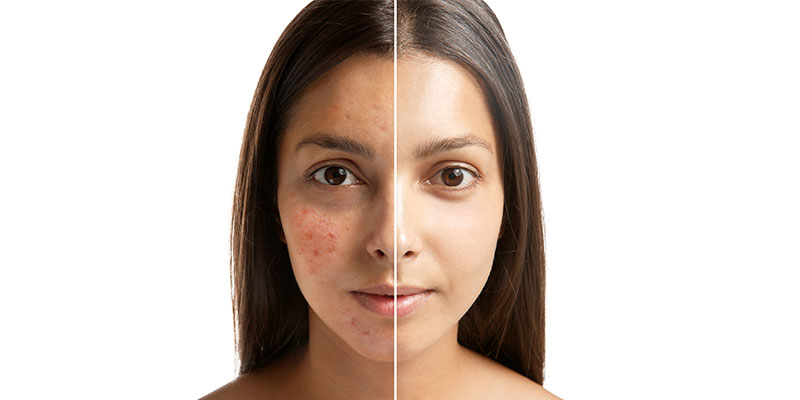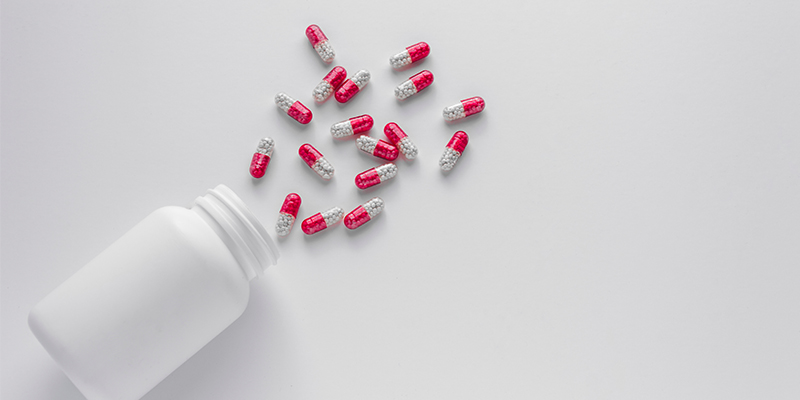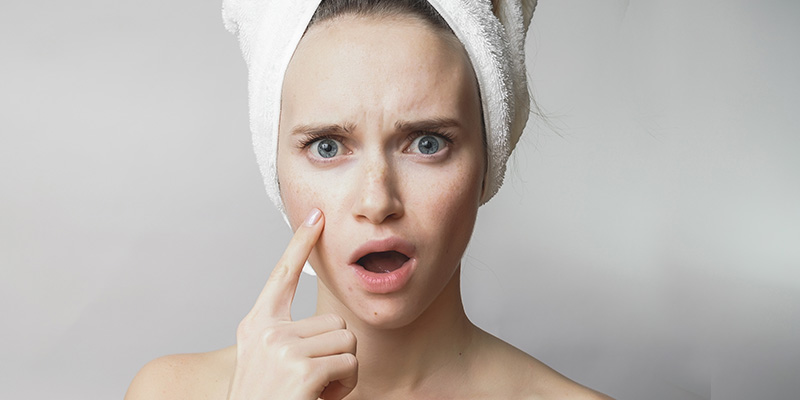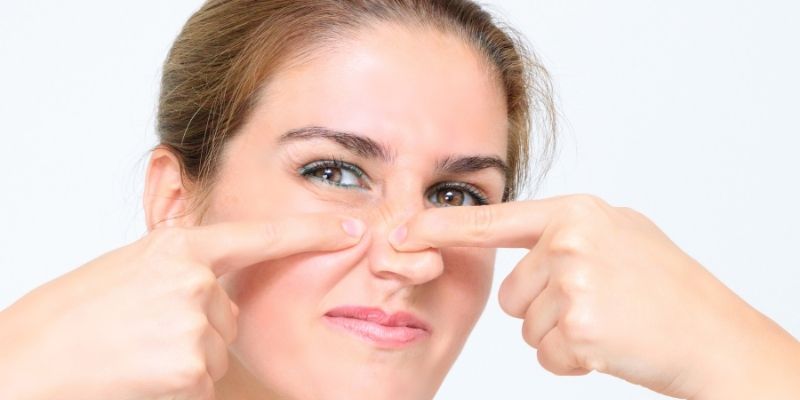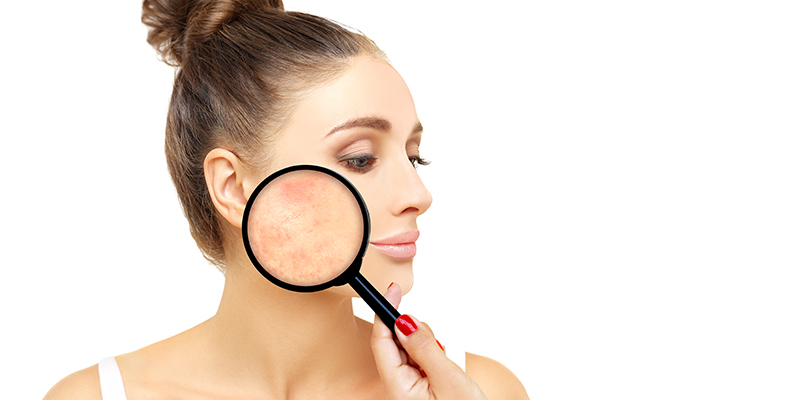In This Article
What’s True About Acne? Myths vs Facts Explained by Dermatologists
Though acne is a highly common skin concern, it is often neglected. People opt for home remedies to get rid of acne, believing they are safer and easier to use. These days, there is also a lot of misinformation easily available on the internet. Most of us fail to understand that DIY solutions, home remedies, and internet treatments do not offer the same results for everyone. Further, there is a high chance that they can worsen the acne, damage the skin, and lead to scars. In this article, we will be busting some of the common myths about acne, coming straight from experienced dermatologists. We will understand the science behind acne and the advanced acne treatments at Oliva Clinics, which give you clear, healthy skin.
In This Article
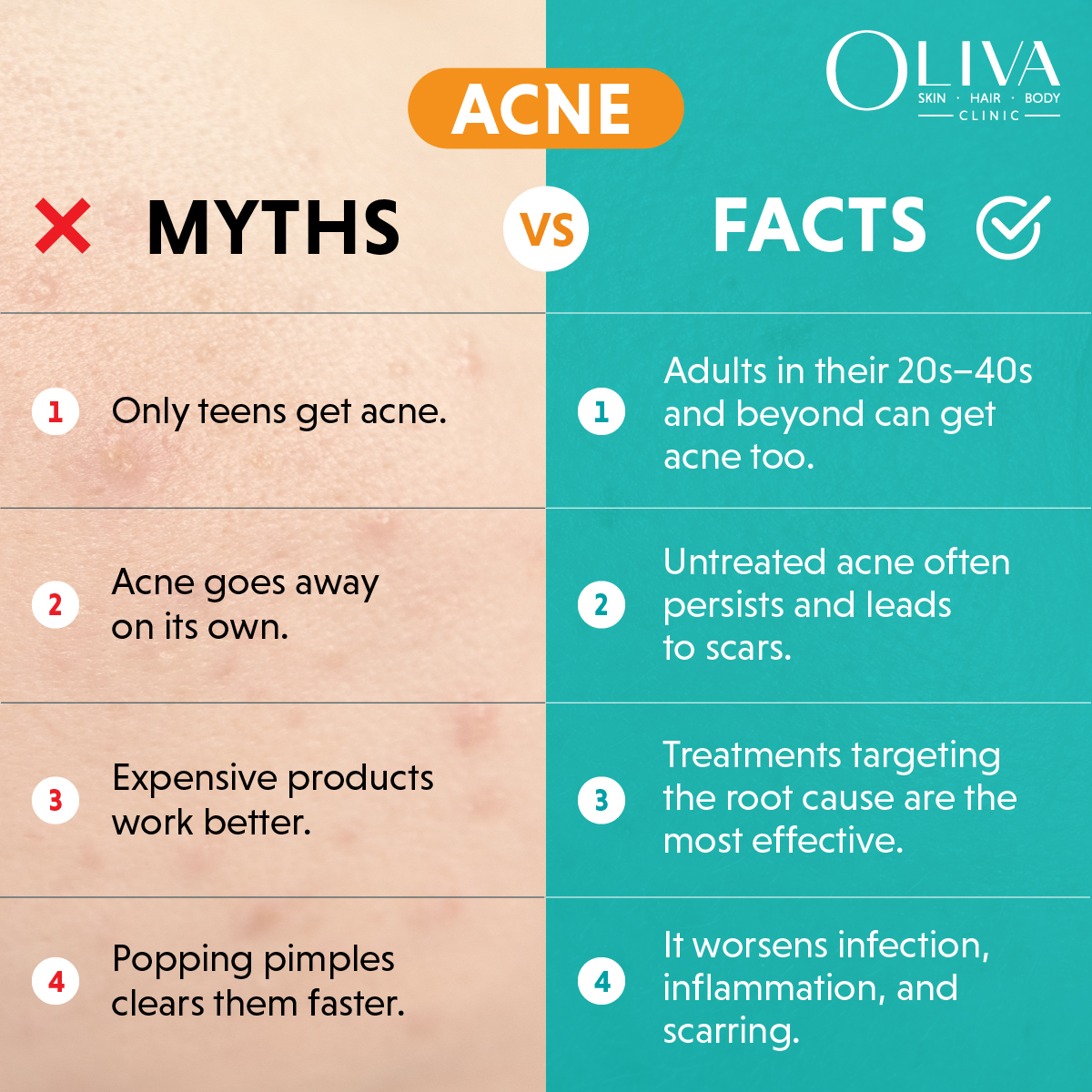
What Causes Acne?
It is important to learn about the causes of acne as the treatments should address them if you want lasting results. Acne appears when excessive sebum (oil), dirt, dead skin cells, and other build-up clogging the hair follicles. [1] This creates the environment for bacterial growth and inflammation, resulting in acne.
This excessive sebum production can be the result of hormonal changes during puberty among teenagers, around menstruation, pregnancy, and menopause. If someone in your family has acne, there is a good chance that you may also be prone to it. Further, stress, poor lifestyle and eating habits can worsen acne.
Common Acne Myths Vs Facts
Now that we know the medical reason behind the occurrence of acne let us look at some common myths about the skin condition and debunk them:
-
Myth: Acne is caused by dirt or lack of hygiene.
Fact: Clogged pores result in acne. Lack of hygiene may aggravate acne but is not the primary cause. It is important to keep your skin clean and allow it to breathe.
-
Myth: Acne affects only teenagers.
Fact: Hormonal changes can increase sebum production, which can cause acne. Since hormonal fluctuations can happen even after teenage years, the occurrence of acne is not limited to teenagers. It can also affect adults in their 20s, 30s, 40s, and those closer to menopausal age. [2]
-
Myth: Eating chocolate or greasy food leads to acne.
Fact: Highly processed foods, foods with high glycaemic index, [3] dairy products, sugary items, and greasy meals can increase sebum production, contributing to acne. If your skin is already acne-prone, these foods aggravate it. Have your favourite foods in moderation.
-
Myth: Stress is a direct cause of acne.
Fact: Again, stress can contribute to hormonal fluctuations, which increase oil production, which in turn aggravates your acne. Also, stress can worsen your health in many other ways too, so it is always better to work towards building a healthy, stress-free lifestyle.
-
Myth: Popping pimples helps them disappear faster.
Fact: The urge to pop a pimple is common for all of us. We want to get rid of it quickly, and most of us also think that it will be gone immediately. But when you pop a pimple, the bacteria go deeper into the skin. Inflammation worsens, the risk of infection increases along with scarring. Scars, once formed, will not fade away unless you go for advanced procedures.
-
Myth: Costly acne products are more effective than affordable ones.
Fact: Certain topical products may work for mild acne but to stop recurrence, you must address the root cause. Dermatologists often recommend topical acne treatments along with advanced, science-backed treatments, and lifestyle changes after identifying the unique underlying cause. So, spending money blindly on products will not serve your purpose. Consulting a dermatologist and getting the appropriate products is the best solution.
-
Myth: Acne will eventually disappear without treatment.
Fact: As long as the underlying cause of the acne exists, it will be recurring. If not treated at the right time, it aggravates and also results in scarring. Acne scars require a different treatment plan.
-
Myth: Blood purifiers clear acne and cleanse the skin.
Fact: People, especially Indians, believe that those with recurrent acne have impure blood. Blood purification is also not a medically-recognised concept. The body has its own, natural mechanism to purify blood. Further, acne results from excessive sebum production due to hormonal fluctuations, stress, food habits etc. Stay away from marketing gimmicks selling blood purifiers for acne, and consult a dermatologist for the best acne treatment.
-
Myth: People with excess body heat are more prone to acne.
Fact: Heat boils are different from acne, though they have a similar appearance. Heat boils result from friction due to excessive heat or humidity. Acne results from too much sebum production mixing with dirt and other build-up and clogging the hair follicles.
-
Myth: Fried and oily foods trigger acne breakouts.
Fact: There is no scientific evidence linking oily and fried foods to acne breakouts. For people with acne-prone skin and hormonal fluctuations are the underlying cause, then oily, processed foods can spike insulin production, increasing sebum production. It may aggravate your acne, but cannot directly cause acne.
-
Myth: Acne appears only on the face.
Fact: The most common body areas for acne include the face, neck, back, chest, shoulders, and among others on the buttocks.
-
Myth: Getting facials regularly can get rid of acne.
Fact: Topical cleansing treatments like facials cannot help with acne. You need to work on treating the underlying cause along with advanced medical procedures like chemical peels that exfoliate the skin. A dermatologist can give you the right treatment as they customise it based on the cause of your acne, severity, and your unique skin type.
If you are looking for safe and effective acne treatments, book a consultation with us.
Why Believing These Myths Can Worsen Acne?
Acne needs the correct diagnosis and treatment. When you believe in these myths, it is easy to get distracted from the real cause of your acne, which will delay the effective scientific treatment. Believing in these myths will make you opt for home remedies, DIY solutions, and not get the best treatment.
We recommend that you consult a dermatologist and get science-backed solutions for lasting, clear, acne-free skin.
Why Trust Dermatologists for Acne Treatment?
The causes of acne differ from person to person and it requires personalised treatments. A dermatologist is a trained and certified skin specialist who will thoroughly understand your skin type, the underlying cause, the severity of your acne and then provide customised, science-backed solutions that are proven to reduce acne and give you clear skin for the long term. It is also important to note that persistent acne can be a sign of underlying conditions that need to be addressed and medical intervention is always the best solution.
Dermatologist-Backed Acne Treatments That Work
Now that we are clear about why home remedies and DIY solutions don’t work for acne, let us take a look at the most effective, science-backed treatments. Dermatologists usually recommend these individually or as combination treatments.
- Chemical Peels: This treatment involves the use of plant-based acids. Dermatologists customise the strengths of the chemical peels based on your acne type and severity. This treatment exfoliates the top layer revealing healthy skin.
- Comedone Extraction: Blackheads and whiteheads, a common type of mild acne, also known as comedones require this treatment. This is an in-clinic procedure where dermatologists use specialised tools to clear out the comedones, giving you clear skin. Make sure you get this done by a dermatologist as there is a high risk of scarring your skin.
- Intralesional Injections: This is an effective treatment for severe nodular or cystic acne, which involves the use of specialised corticosteroid injections. It helps reduce the pain and swelling that comes with this type of acne.
- Topical & Oral Medications: If the underlying cause of your acne is a hormonal condition like PCOS or insulin resistance, dermatologists will recommend oral medications like Isotretinoin, antibiotics, and hormonal therapy. If necessary, they will prescribe topical medicines like retinoids.
Why Choose Oliva Clinic for Acne Treatment?
Acne requires the right diagnosis and professional medical care. Here is why Oliva is your best choice for acne treatments:
- Experienced Dermatologists: Oliva’s 125+ dermatologists ensure that every client gets the unique treatment they need based on the concern.
- Holistic Diagnosis & Customised Treatments: Every treatment at Oliva starts with a 5-step consultation process, V-Discover, to get holistic understanding of the client’s concern. Based on this, our medical team with design a customised treatment plan.
- Advanced US FDA-approved Technology: All Oliva Clinics across the country are equipped with the latest FDA-approved technology. Our medical expertise combined with the technology gives you a safe and comfortable treatment experience.
- Guaranteed Client Satisfaction: Oliva’s client satisfaction rate stands at 95%, unmatched by any other dermatology brand in the country.
- No Hidden Costs: Our system is transparent, where our team ensures clear and honest communication with clients throughout their journey at Oliva.
Takeaway
We trust this article helped you separate myths from facts about acne and you now understand the implications of believing in the se myths. It distracts you from getting the right diagnosis and the treatment for acne. We encourage you to stop blindly believing in these myths and seek medical help for your pimples so you can enjoy lasting clear, acne-free skin in the long term.




